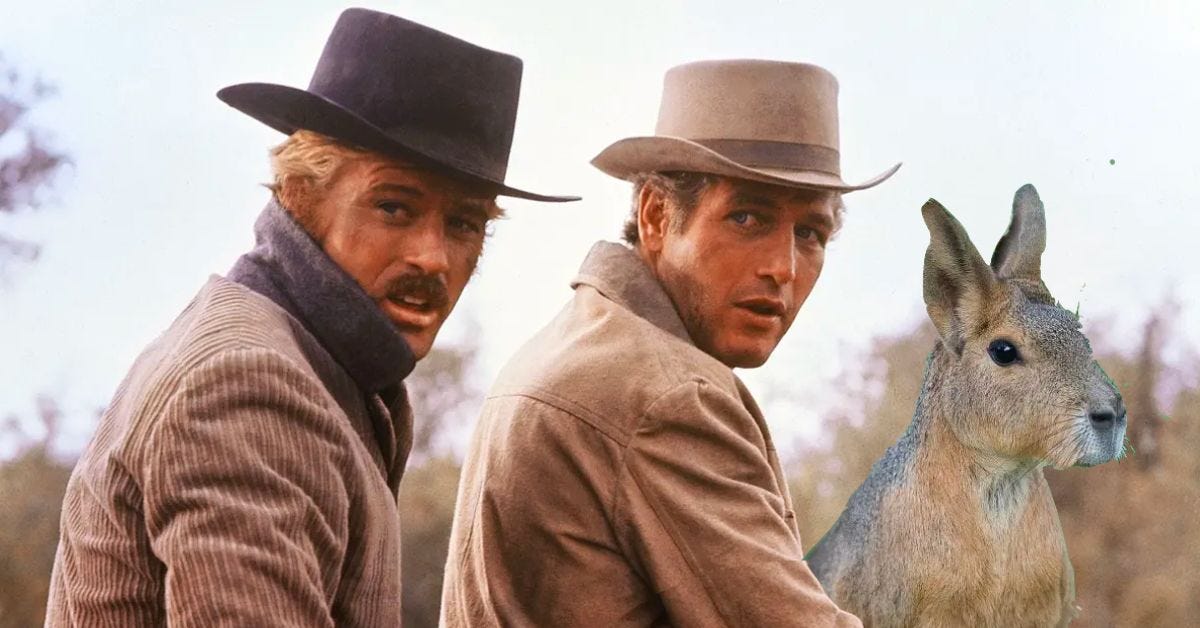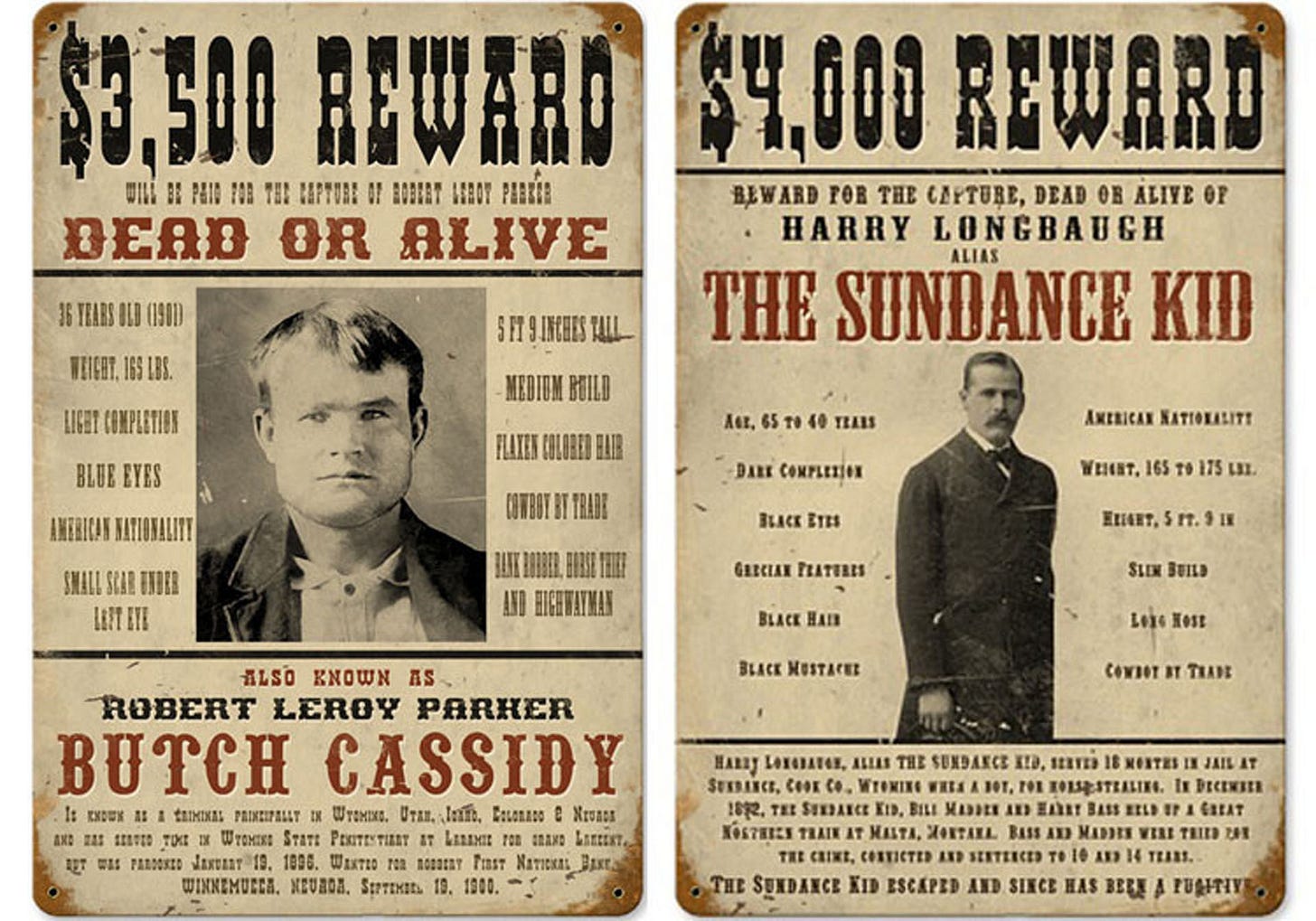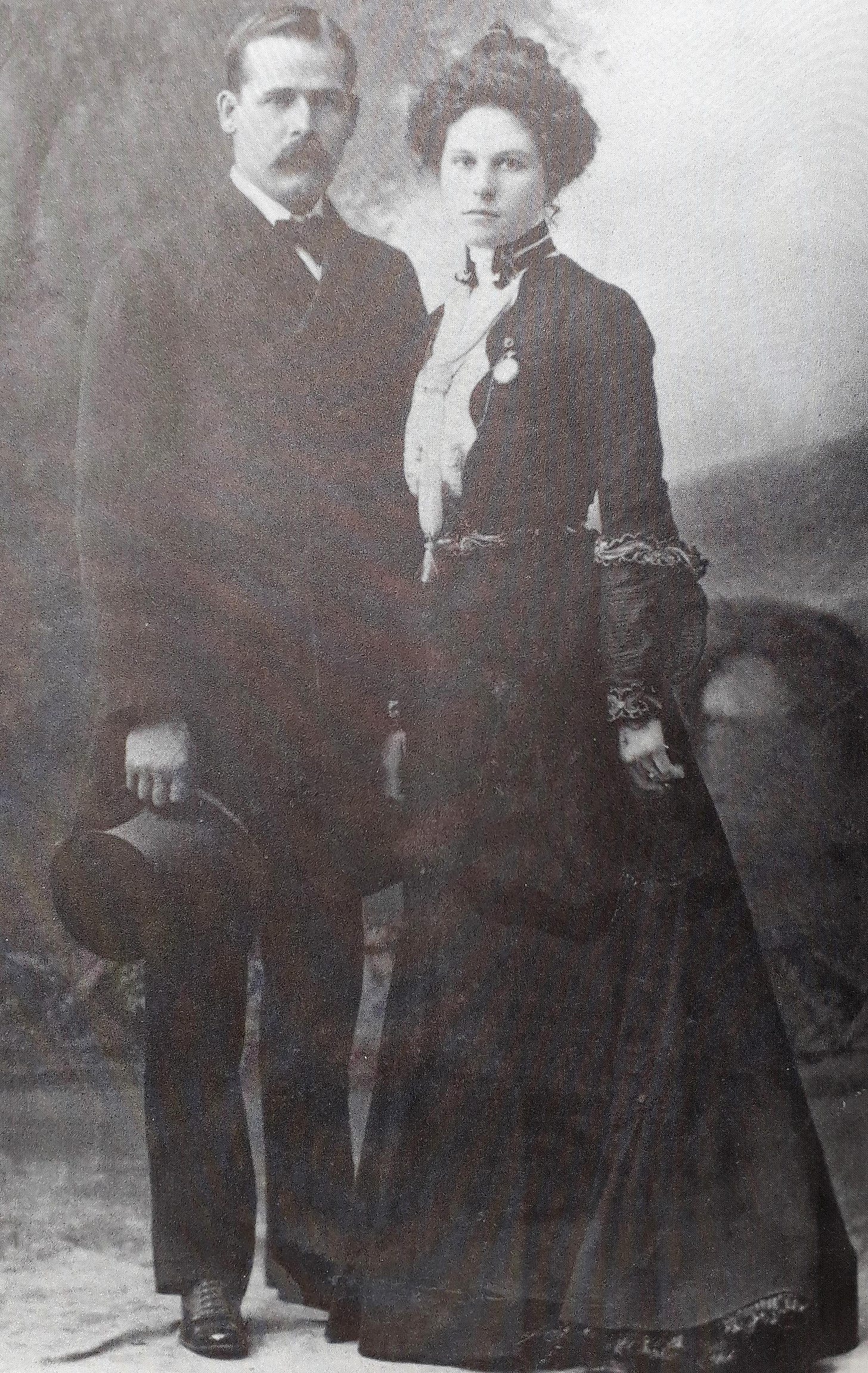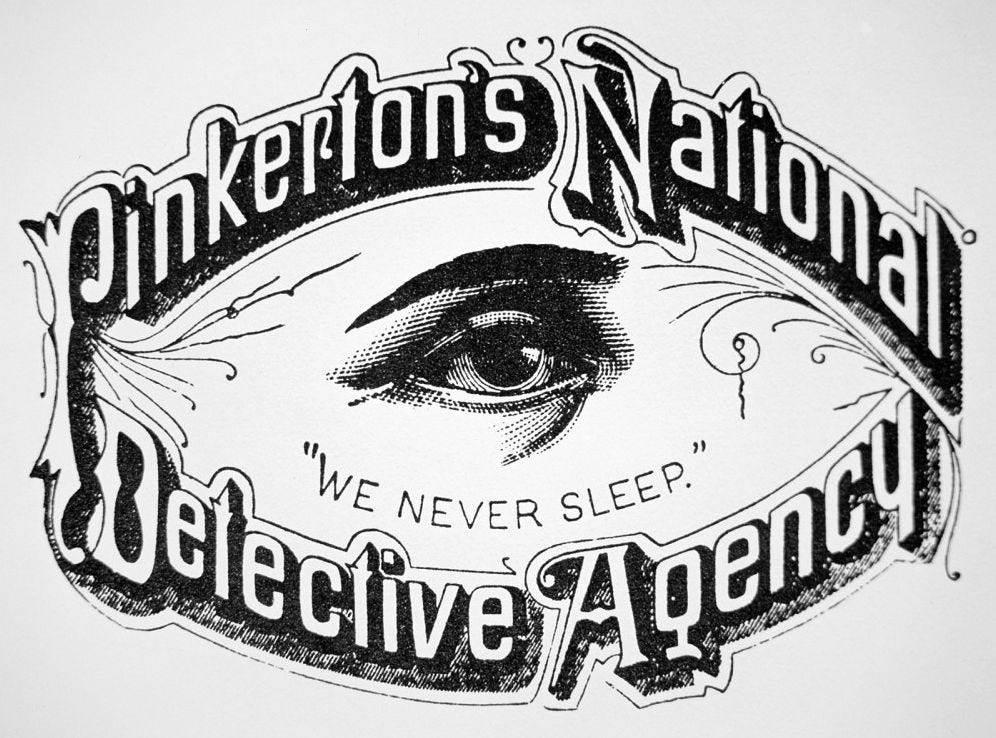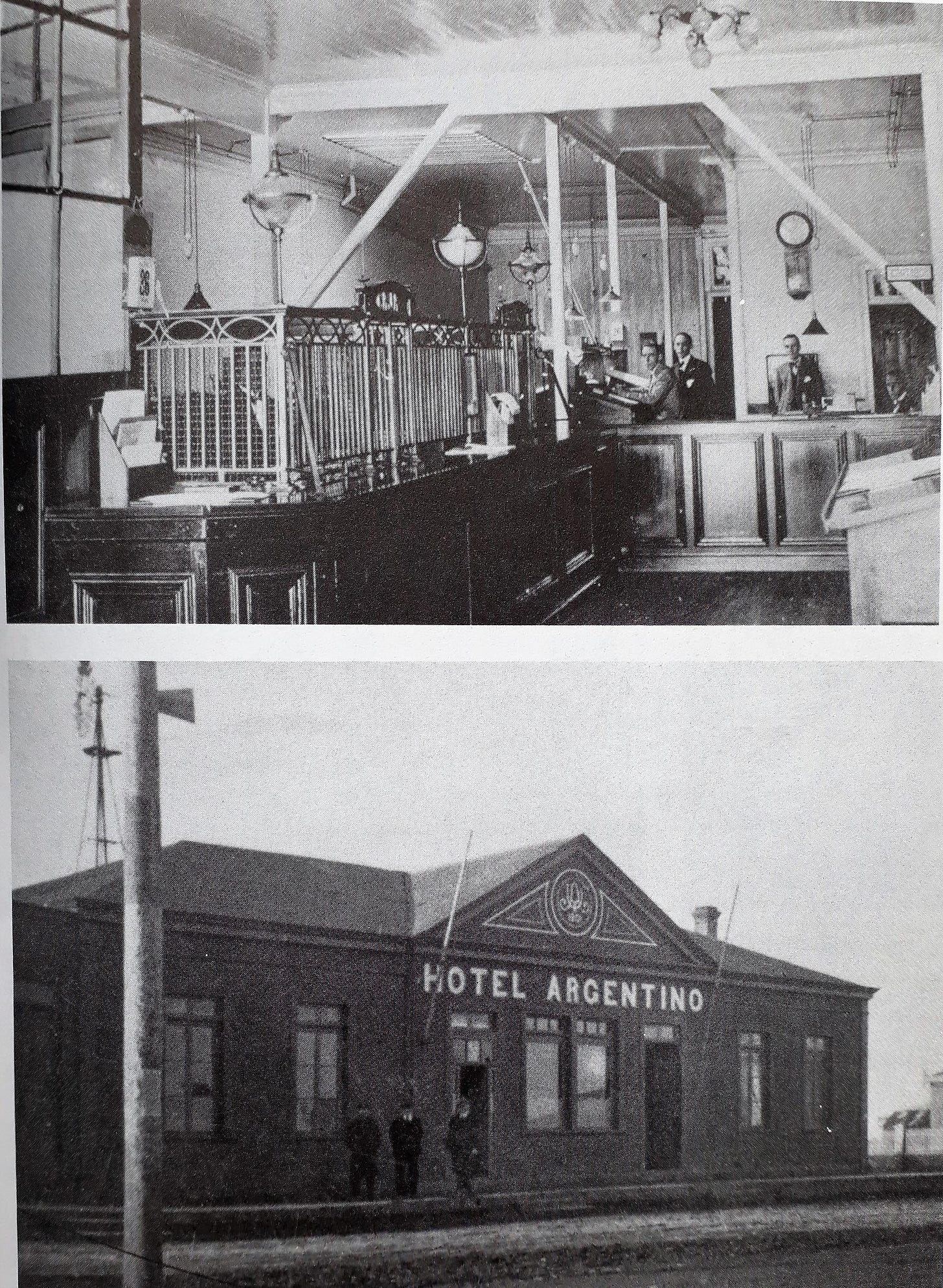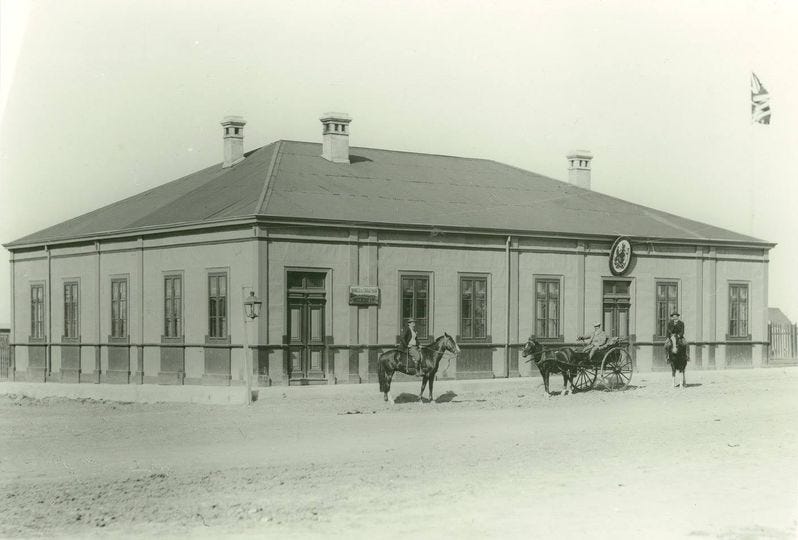Outlaws flee to freedom in the Southern Cone
How Butch Cassidy and the Sundance Kid spent their final days in Argentina
Welcome Avatar! Today we will dive into a story that is not that well known about infamous US bank robbers Butch Cassidy and the Sundance Kid, and how they ended up fleeing to Argentina while on the run from US authorities.
The country at the “end of the world” has always appealed to criminals and sovereign individual freedom fighters alike. Argentina has many qualities that make it the perfect spot for both groups; a lack of state oversight, prosperous agricultural land and a vast extension of territory where one can easily vanish without a trace.
The Wild Bunch: a track record ready for export
The bank and train robberies of "The Wild Bunch" became famous in the United States not only for their scale, but also for the planning that went into them. Members of the Wild Bunch usually arrived long before to study the locations, environment and circumstances for their next heist.
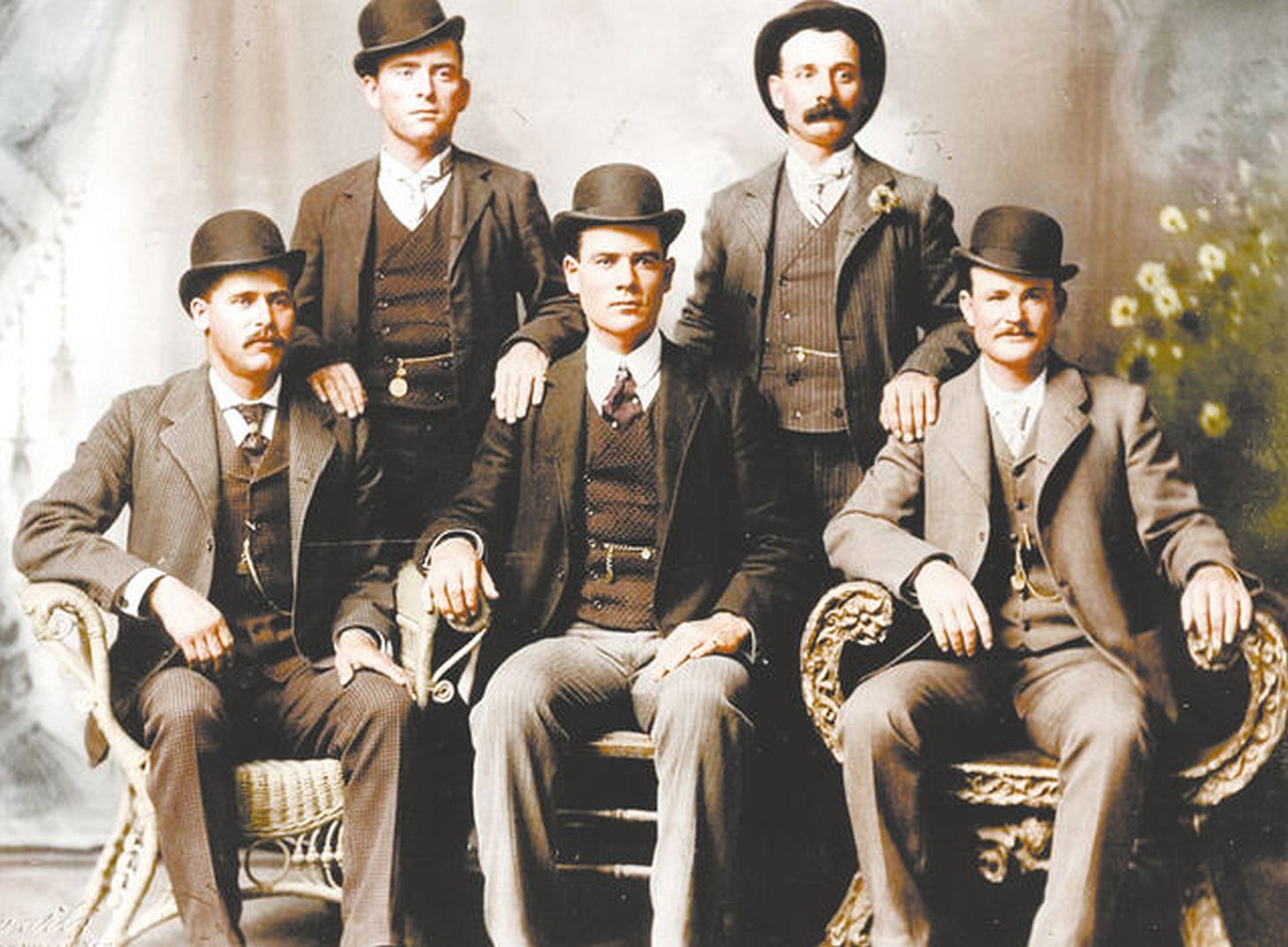
To facilitate their escape after a robbery, they would take additional precautions like cut telegraph cables and have horses located in pre-established spots. The Wild Bunch earned its nickname for a reason: the gang did not mind shooting up some innocent bystanders who happened to be in the way.
How the Wild Gang ended up down south
Robert LeRoy Parker, aka "Butch Cassidy", was born on April 13, 1866 in Beaver, Utah, United States. His one-year younger accomplice Harry Alonzo Longabaugh, aka "Sundance Kid," had received that nickname from the Wyoming jail where he spent 18 months for horse theft.
In the late 1890s and early 1900s, Argentina was a mecca for immigrants from around the world, and articles about ranching opportunities in Patagonia appeared in newspapers and magazines in the United States.
Argentina was one of the richest countries in the world around this time, and it attracted many fortune seekers from around the world.
Autist note: another story set in the same time period with similar Patagonia fortune seekers is the story of the Romanian Julius Popper, who declared himself King of Patagonia. You can read more about that story in this previous article.
Butch and Sundance were on the run from US authorities and what better place to run to than one of the most remote regions on earth, that was also inviting immigrants to come over and didn’t bother too much with checking the veracity of travel documents?
They arrived at the port of Buenos Aires in March 1901 under false names: Butch Cassidy travelled under the name of James Ryan and the Sundance Kid called himself Harry Place. A young woman, Etha Place, a partner of the latter, arrived in Argentina together with the two men.
Upon their arrival in Buenos Aires in early 1901, they registered at the Hotel Europa, on Cangallo and 25 de Mayo. A few days later, the Wild Bunch trio met with brothers George and Ralph Newbery, dentists and United States vice consuls in Buenos Aires.
The Newbery brothers received Butch Cassidy and the Sundance Kid, hidden behind their false identities, and suggested to settle in Patagonia. They both had investments in Neuquén already, to the north of the Nahuel Huapi Lake, and yearned to populate the area with Anglo-Saxon immigrants in order to request that they be allowed to build a colony there in the future.
The Newberys told the newly arrived that from Bariloche to the south there was a lot of land available. The false immigrants expressed their desire to settle to develop livestock enterprises.
Two months later, together with Etha Place, they took a train at the Constitución station in Buenos Aires and, after passing through Bahía Blanca, they arrived in Neuquén. Impressive to learn that the train connections back then were better than they are now by the way.
With the assistance of a guide, they finally settled on the banks of the Río Blanco, in the Cholila valley in the northwest of Chubut. In those days only six families lived in that area.
After opening an account in the Buenos Aires branch of the Banco de Londres y el Río de la Plata, with the money they had brought from the United States, they acquired fifty hectares of northwest Chubut, at the foot of the Andes Mountains.
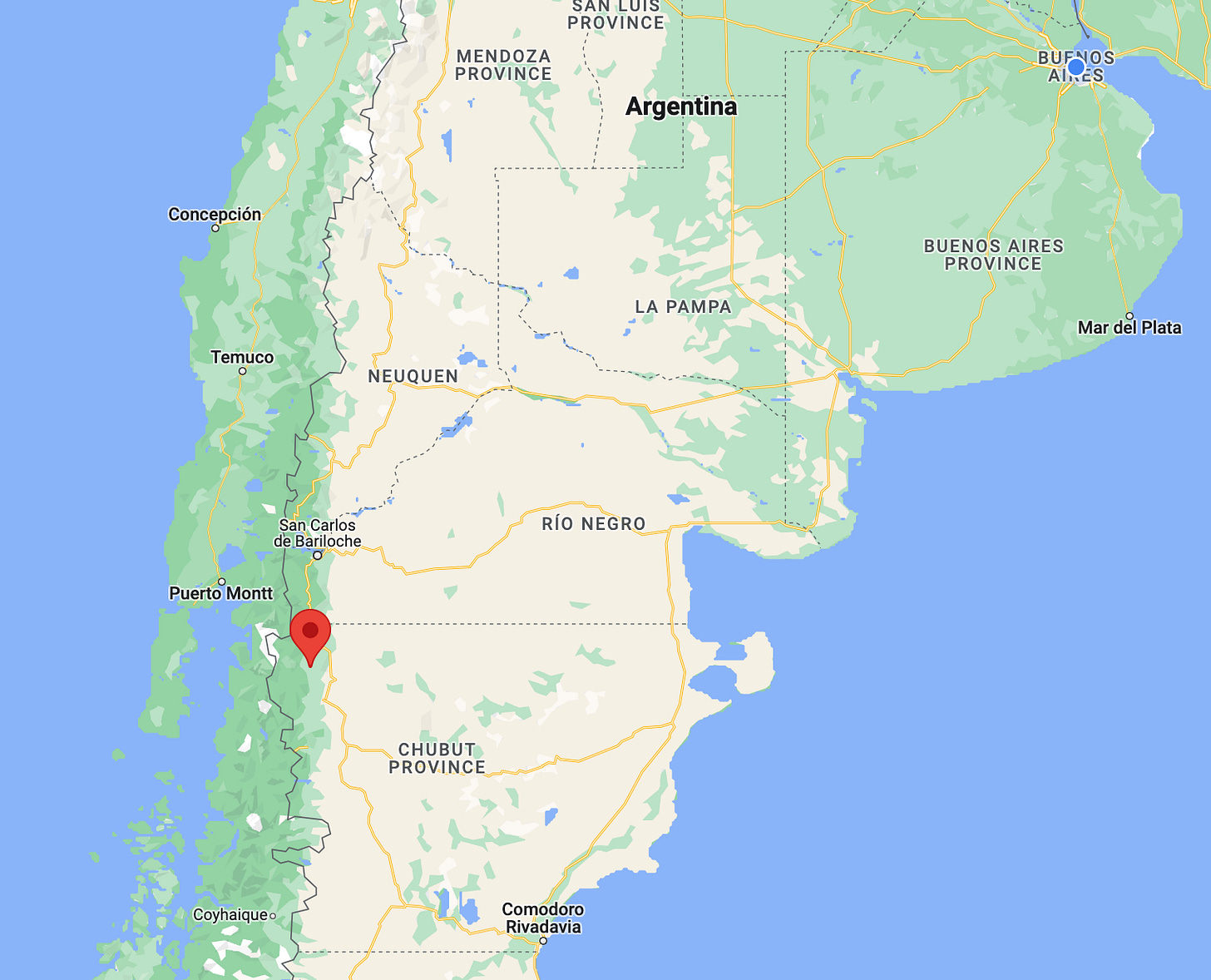
There they built an American-style cabin, which is still standing, where they began to encounter other Americans who wandered in Patagonia in search of fortune.1
The trio started raising sheep acquired from the Argentine Southern Land Company (a conglomerate of farms that currently belongs to the Benetton group). But as you can imagine, raising sheep in the Patagonian wilderness was a lot less attractive than the quick hit and runs on banks, and profits were a lot lower.
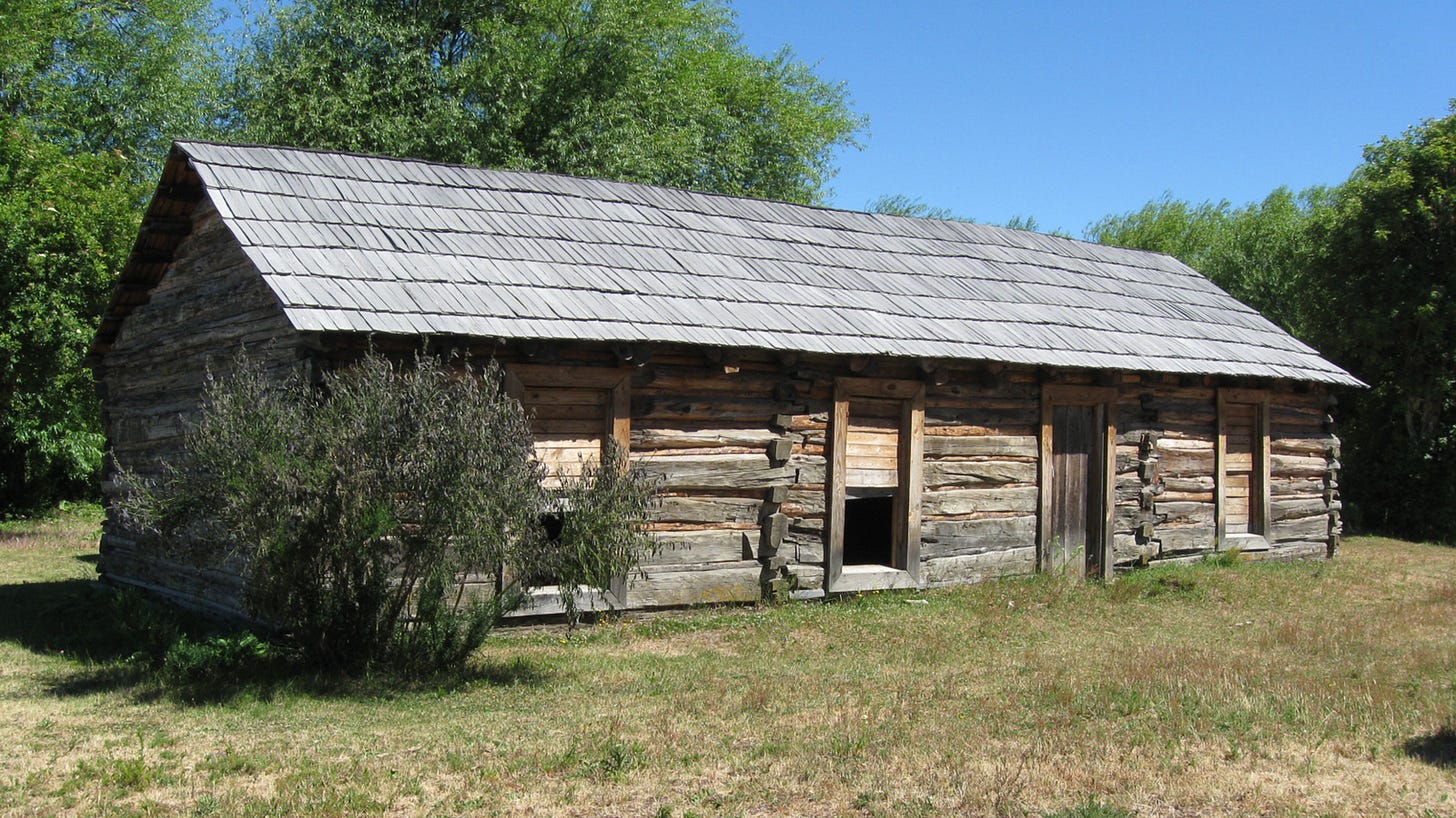
Mindful that the Argentine government intended to turn the west of Chubut into an agricultural colony, they request formal recognition of their settlement of the place, to be considered with the benefits of the "Ley del Hogar", a law through which the Argentine State granted a quarter of square league (625 hectares) to all Argentines, or foreigners willing to naturalize within two years, under extremely advantageous conditions.
Investigations indicate that in 1902, Cassidy, under his false name, appeared at the Directorate of Lands and Colonies of Buenos Aires, reporting that he had colonized some 625 hectares and claimed ownership.
In a letter to a friend, Butch Cassidy wrote:
“I like the place better every day. I have 300 cattle, 1500 sheep, and 28 good Saddle horses, 2 men to do my work, also good 4-room house, wearhouse [sic], stable, chicken house and some chickens.
The only thing lacking is a cook, for I am still living in Single Cussedness and I sometimes feel very lonely…
[For cattle] the country is first class. it can’t be beat for that purpose, for I have never seen a finer grass country, and lots of it hundreds and hundreds of miles that is unsettled and comparatively unknown… there is plenty of good land along the Mountains for all the people that will be here for the next hundred years…
The summers are beautiful… And grass knee high everywhere and lots of good cold mountain water…”. -source
From this and other testimonies, it can be deduced that the initial idea of the bandits was to settle in Patagonia to live the rest of their lives in peace, away from crime and safe from the persecution of Justice.
Sheep farming in Patagonia
The northwest of Chubut was an ideal place for fugitives, not only because of the possibilities it offered for raising cattle.
At the beginning of the 20th century, the whole region below the Pampas was a no man's land, and the Southern part of Argentina formed part of the extensive strip of territory in dispute with Chile (which would be resolved in November 1902).
There was a lack of land owners, although a good part of the best land had been practically given away for free to the British businessmen associated in the Land Company.
They lived quite peacefully as two more immigrants in Cholila until 1905, achieving a respectable concept from the rest of the community. Ironically, they developed a close relationship with a former Texas sheriff, John "Commodore" Perry.
Perry had settled in Cholila in 1903 and maintained a social and commercial link with the bandits. Some suspect that Perry knew the real identity of the fugitives, others dismiss that hypothesis. The truth is that when Butch Cassidy and the Sundance Kid decided to leave Cholila, it was Perry who they sent the farewell letter to.
The Sheep Farm Bunch about to turn Salvaje again
The Pinkerton Agency, a private police force at the service of large companies, was still looking for Butch Cassidy and Sundance Kid in the United States.
Pinkerton spied on all the correspondence from Butch Cassidy and the Sundance Kid to their family and friends in the United States, and this is how they discovered that they had fled to Argentina.
In March 1903, detective Frank Dimaio set out on their hunt, arriving in Argentina with the sole purpose of arresting them.
Dimaio met with the Buenos Aires police chief, Francisco de Beazley and US consul George Newbery, and handed them a thick dossier. The dossier contained files and photographs of Butch, Sundance, and Etha, as well as journalistic material about their adventures at the head of The Wild Bunch.
That information was kept secret and would only be disclosed two years later.
In July 1903, Robert Pinkerton, owner of the agency, wrote to Beazley:
"It is only a matter of time before these men commit any robbery in the Argentine Republic. If they report any robbery to a bank or a train or some other similar crime, you will discover that it was perpetrated by these men".
And he was right.
But by then, the fugitives were illustrious residents of western Chubut. At the beginning of 1904, Governor Julio Lezana toured the territory and no one was surprised when, upon arriving in Cholila, he stayed at Butch and Sundance's cabin.
However, in the collective imagination some anecdotes suggest that the forged identity of Butch Cassidy and the Sundance Kid would not have been so unknown (or at least their criminal profiles) for some families in the region.
The end of Chilling in Chubut
Butch and Sundance could’ve managed to settle down and live peacefully in Cholila, and have spent the rest of their lives there, raising families, and their descendants today would be ranchers, soy planters, or real estate salesmen.
But, following their model in the United States, they couldn't stay away from crime and had to start an Argentine franchise.
Things kicked into overdrive when Commissioner Edward Humphreys, a Welsh Argentine friend of Butch Cassidy, informed them from Trelew that the Pinkerton detective agency was in Patagonia, looking for them.
From there, the plan to chill in Chubut was disrupted and the bandits began to plan a new escape. Governor Lezana, previously an honored guest at their cabin, had already issued an arrest warrant.
Butch and Sundance liquidated the entire hacienda, and sold the improvements they had made and a right of possession to a Chilean company. They settled all the debts they had had for four years with their social and business circle and sent farewell letters.
The story goes that their neighbors and friends were shocked when their true identities were made public and only a few would have truly known who they were.
The south also has some banks to rob
Their return to crime was associated with other criminals, including Robert Evans, who lived on the same ranch in Chubut, culminating in his involvement in Evans's robbery of a bank in Río Gallegos in early 1905.
In mid-January 1905, two North Americans who claimed to be ranchers in search of land arrived in Río Gallegos.
At that time Río Gallegos was a town of just under a thousand inhabitants but with important commercial development, which circulated through two banks. The new arrivals befriended the teller of the Banco de Tarapacá (later Lloyds Bank).
That friendship was nothing more than the pretext to study the place and carry out, on February 14, what is known up to now as the first bank robbery in Argentine history.
Well armed and acting like professionals, the Americans seized the money and they fled on horseback.
The assault on the Bank of Tarapacá and Argentina in Río Gallegos, on February 14, 1905, by two English-speaking bandits, precipitated the Pinkerton Agency to try to arrest Butch Cassidy and the Sundance Kid, who were pointed out as the main suspects.
On the run once more
The trio fled to San Carlos de Bariloche and embarked on the steamer El Cóndor across the Nahuel Huapi Lake. They crossed the border and arrived in Chile through Petrohue, from where they continued towards Lake Llanquihue and from there to Puerto Montt.
A steam train brought them to Valparaíso and from there they continued their route to Santiago de Chile. This itinerary was promoted as a popular tourist tour.
Like many tourists nowadays that cross the border, they didn’t stay in Chile for long. In December that same year they travelled back to Argentina and robbed the Banco de la Nación in Villa Mercedes, San Luis. Persecuted again, they crossed into Chile again to take refuge.
Autist note: It is pretty mind blowing how far they travelled. Río Gallegos today is about 15+ hours by car from Cholila, and they made it to there and back.
The next steps of the trio become blurred, due to lack of documents. The trail of Etta Place was lost without revealing the mystery of her identity: the surname she used was the false name her partner used to hide in Argentina.
Bolivia: the place where many meet their fate
From Chile, Cassidy and Sundance fled to Bolivia with the old dream of setting up a ranch and raising cattle. Since they had no money, they returned to the only way they knew to finance themselves: robbery.
Money from mining companies and railroads in Bolivia proved an irresistible temptation for the duo.
On November 6, 1908, after robbing the paymaster of a mining company, a peloton of the Bolivian army surrounded the bandits in a house in the town of San Vicente.
The shooting went on through the night: Butch killed a Bolivian soldier and Sundance was wounded.
As is often the case in Bolivia (see Che Guevara’s fate), there was no escape from this one. After a pause in the confrontation, two shots were heard in the room where the Americans were shooting from: Butch had killed his partner and then committed suicide.
The exact circumstances and even the date of the shooting of November 6, 1908 in Bolivia were not clarified until the early nineties.
Final thoughts
Some people, like Butch Cassidy’s sister, later assured that the bandits had not really died in Bolivia, but that they returned to the United States to live anonymously.
No matter what the truth is, the passage of Butch Cassidy, the Sundance Kid and Etha Place through Argentine Patagonia is a wild story that shows that Argentina can be the ideal place to invent new identities, buy land and weave a close relationship with the local community, independent of people’s background.
The true Jungle is down south, anon!


